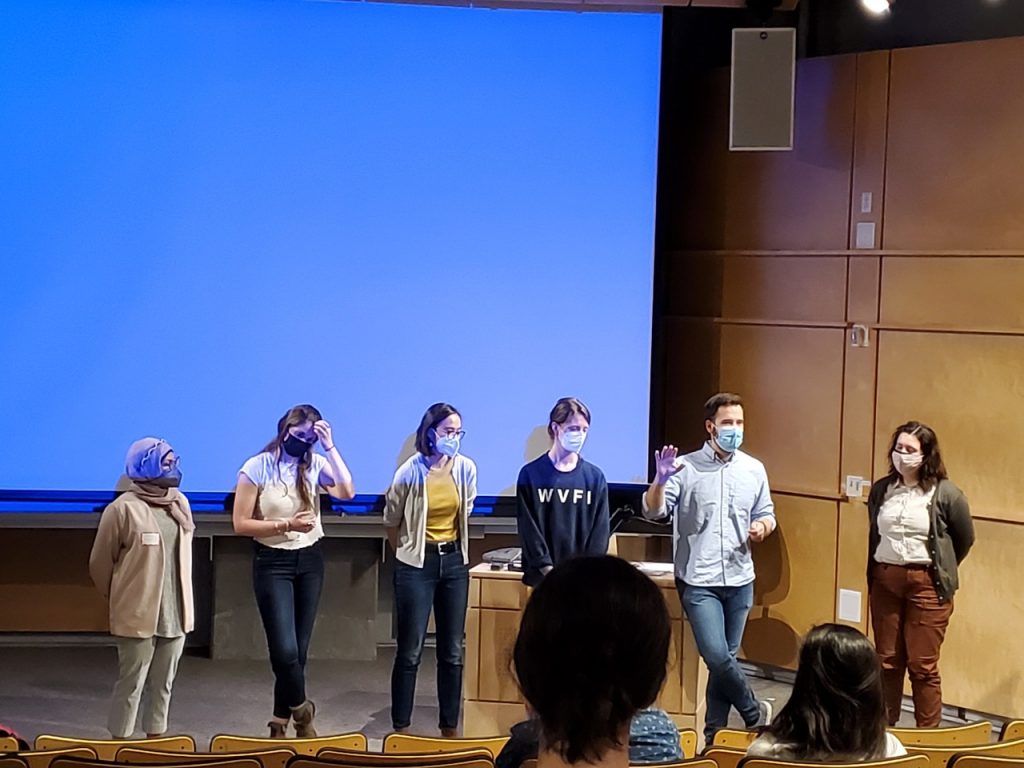The Fifth Annual Spring Symposium was held on May 19, 2022
The PCC Graduate Steering Committee (P-GraSC) hosted the fifth annual PCC Spring Symposium on Thursday, May 19, 2022. The evening featured six student speakers who shared their climate-related research, capstone projects, and outreach, spanning broad topics from sea ice to energy policy to wildfires and more.
Molly Wieringa (Atmospheric Sciences) described short-term variability in Arctic sea ice and what factors might help sea ice forecasting.
Nicolas Wittstock (Political Science) spoke on the “US Clean Energy Policy Trilemma,” i.e. how economic cost, the urgency of climate change, and geopolitical tensions especially with China present competing factors in the transition to clean energy.

Daaniya Iyaz (Environmental and Occupational Health Sciences) discussed how smoke from wildfires in Washington State leads to higher child hospital visits.
Cassidy Berlin (Public Policy) shared capstone project results showing that Lakewood, WA residents have been personally affected by climate change and believe that climate change will harm future generations of Lakewood.
Amy Wyeth (Oceanography) described how zooplankton in the Puget Sound respond to ocean acidification by swimming more slowly and how hypoxic conditions increases mortality rates of zooplankton.
Greta Shum (ACORN) discussed how fracking in the Ohio River Valley did not lead to tangible financial benefits for residents near areas of natural gas development.
Over forty students and faculty representing at least ten departments and programs attended the symposium. In the lively question-and-answer session following the talks, the discussion often bridged topics from multiple talks, showcasing diverse yet interrelated topics of climate-related research and outreach activities done by graduate students in the PCC.
The Spring Symposium was organized by Ursula Jongebloed (ATM S), Becca Cleveland Stout (ATM S), Annie Doubleday (DEOHS), Inhwan Ko (Political Science), and Andrea Richter Sanchez (SMEA).